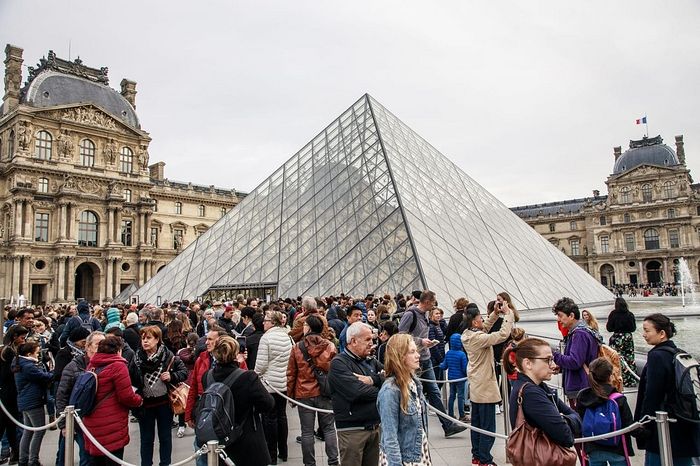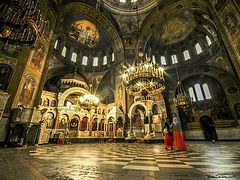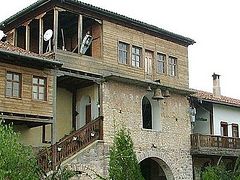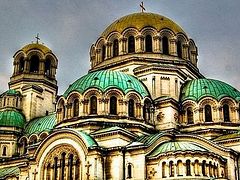Sofia, February 12, 2020
The Holy Synod of the Bulgarian Orthodox Church has refused to give its blessing for holy icons and other sacred objects to be removed from their places of worship to be displayed in the world-famous Louvre Museum in Paris.
“This is a principled position that items must not be taken out of the church repositories and taken abroad unless it is for pilgrimages,” explained His Grace Bishop Gerasim of Melnik, Secretary of the Holy Synod, reports Radio Bulgaria.
Minister of Culture Boil Banov had requested that the Holy Synod give its blessing for crosses, icons, censers, Gospels, Royal Doors, and other objects—16 in all—from Bachkovo Monastery, the National Church Historical and Archaeological Museum, and the Church Historical and Archival Institute under the Bulgarian Patriarchate, according to epicenter.bg, which spoke with the Minister.
The planned exhibition, now canceled, also roused indignation in society and academic and Church circles when it was learned that it was planned to display the icons and other artwork in the museum’s Islamic Art Department with the aim of demonstrating a link between Christian and Islamic art in Bulgaria.
The exhibition, entitled “Art and Cultures in Bulgaria Between the 16th and 18th Centuries,” was scheduled for June to November, and would have featured 60 religious items including icons, manuscripts, books, jewelry and plates from a time when the Orthodox nation of Bulgaria was part of the Muslim Ottoman Empire.
While the Bulgarian Parliamentary Committee on Culture and the Media initially declared that “The processes connected with the forthcoming Bulgarian exhibition at the Louvre are going ahead smoothly,” despite the fact that the sacred items would not be included, Minister Banov announced on Monday that the exhibition has been canceled, reports Balkan Insight.
The Ministry of Culture’s decision came after the negative reaction from the Holy Synod, and from Emmanuil Mutafov, the director of the Institute for the Study of Arts at the Bulgarian Academy of Sciences, who believed the Louvre was misinterpreting historical events.
“The ‘interaction’ between Islamic and Christian art, almost nonexistent during this period, are marginal and on a purely decorative level,” Mutafov wrote in a statement published by artstudies.bg.
The Holy Synod also made its decision with input from Dr. Christo Tomalski, Director of the Church Historical and Archival Institute, whose report detailed a number of such issues with the exhibition.
After the decision to cancel, art historian Klemena Antonova told Bulgarian National Radio that “it shows that people in Bulgaria are easily offended. However, more importantly, it shows a total misunderstanding on the part of the Louvre of Bulgarian history and culture.”
In his interview with epicenter.bg, Minister Boil emphasized that the Louvre had been warned in advance that there was little chance that the Holy Synod would give its blessing for such an exhibition, though the museum decided to move ahead anyways and select Orthodox items it was interested in.
This would have been the third exhibition of Bulgarian art at the Louvre, and the Ministry of Culture announced that it would pitch other ideas to the museum for future exhibitions.





